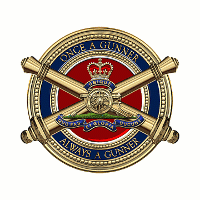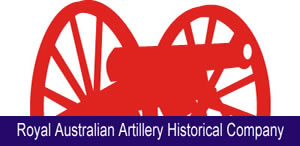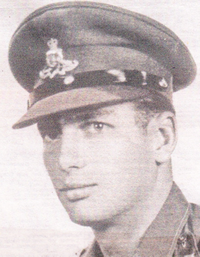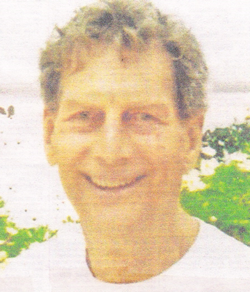A second more illustrious Vietnamese tour of duty fell between 1966 and 1967 with the the Australian Task Force in South Vietnam. A1ex was adjutant of the artillery regimental command post in the bloody Battle of Long Tan in which Australian gunners were critical for victory.
Promoted to major at 27, be attended the Australian Staff College at Queenscliff in Victoria and the Royal Military College of Science in England. He then served as commander of the Army Guided Weapons Trials Unit, at Woomera in South Australia, retiring from the army in 1976 with the rank of major, after 21 years of service.
New opportunities beckoned after he undertook a master of business administration course at the University of Melbourne and joined the Australian Trade Commissioner Service which subsequently became Austrade. The appointment took him to areas around the world that posed challenges and others that offered convivial lifestyles.
His first posting was in Tehran where he was trade commissioner. This was during and after the 1979 Iranian revolution in which the monarchy was overthrown and replaced by an Islamic republic and Americans were held hostage in their embassy. Alex was one of the few Australian diplomats left to staff the Australian Embassy during the revolution at a time when most foreigners were withdrawn.
In Iran he was instrumental in significant Australian wheat sales and handled several crises in Australian meat and live sheep exports by negotiating with the Iranian revolutionary government and with Iranian religious leaders. He also dealt with the Atomic Energy Organisation of Iran, concerning Australia’s uranium exploration program, and negotiated with the Central Bank of Iran in recovering payments owed to Australian exporters. In Iran he met Ann Davies, nee Fishwick, whom he later married, gaining three stepchildren. His second brief posting was to Kuwait where he served as trade commissioner and charge d'affaires.
He then went to San Francisco, where he married Ann in 1980 before being posted to Bangkok, where he was also responsible for Burma, and then Rome. In Bangkok he and Ann added to the family with two children of their own, Joy and Christopher.
In 1987 be was appointed Australian consul-general in Milan with the enviable responsibility for most of northern ltaly, including Venice. He returned with his family to Perth in 1990 and was appointed manager of international business at the Perth office of Austrade from where he helped WA businesses achieve exports in Europe, Asia and North America.
During this time he was a councillor for the Town of Claremont, interested in the natural environment. He was instrumental in the introduction of a tree-preservation policy designed to enhance the amenity of the leafy suburb in which he lived.
Alexander Karas was born on 2nd January 1939 in Zagreb, in what was then the Kingdom of Yugoslavia. He was the eldest of three boys to Dr Vladoje Karas, a director of the Union Bank of Yugoslavia and Baroness Helfrieda Prochazka. Alex’s maternal grandfather, Baron Prochazka, was educated at the Military Academy at Wiener-Neustadt and was a colonel in the Austrian Army during World War I and was awarded the Order of Maria Theresa, considered the highest military honour in Austria. Alex's uncle, the second Baron Prochazka, was a major in the German Army during World War II and was awarded the Iron Cross.
Alex's father was some 20 years older than his mother and had children from a previous marriage; Alex had two elder half-siblings, Paul and Maya. In 1939 his parents migrated to Melbourne. His half-siblings remained in Europe and disappeared during World War II. Most of his relations on his father's side, who were Jewish, were imprisoned and died in concentration camps. An uncle, Marcel, survived and Alex remained in regular contact with him and visited him in Europe on a number of occasions.
His two younger brothers, Andrew and Anthony, also came to Australia but in 1948 his father died. The family then moved to Sydney and Alex was educated by the Christian Brothers. In 1997 Alex retired from full-time employment, having been diagnosed with prostate cancer. He lived with the disease for many years and enjoyed a good quality of life until the very end. In retirement be lectured in business at the University of WA and became a non-executive director of the Fremantle Fisherman's cooperative, taking a great interest in its affairs.
As a family man, he was devoted to his children, extended family and grandchildren, several of whom lived in close proximity to him. He was generous with his talents and with his time and also in financial matters. A lover of exercise, he was a keen squash player, a keen horseman and skilled skier. Moreover, Alex was the consummate diplomat who made everyone feel welcome and at ease. He was an accomplished host with a rare gift of bringing his guests together and moving them around for their enjoyment and to their advantage. Alexander Karas died on 12th September 2009.
|








